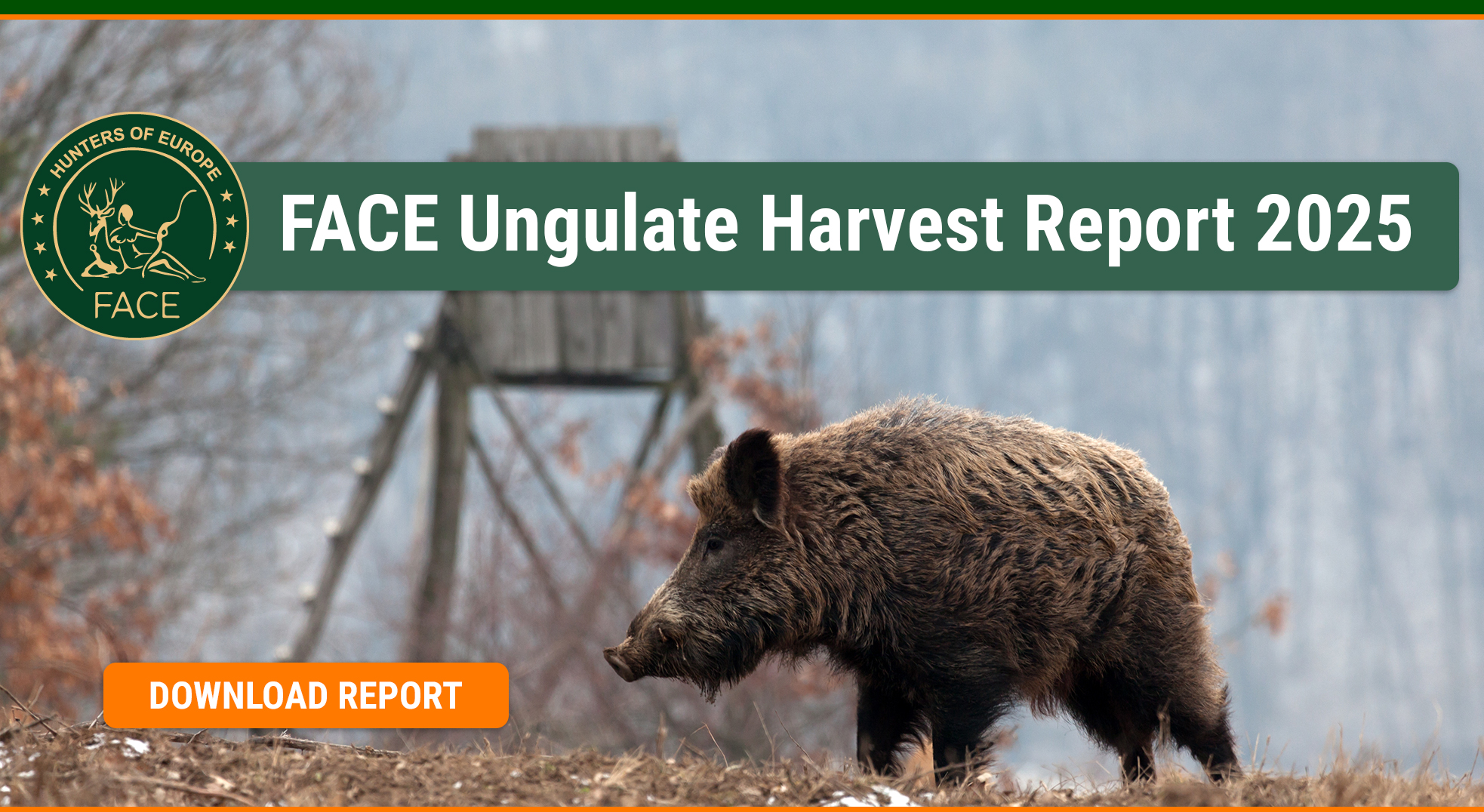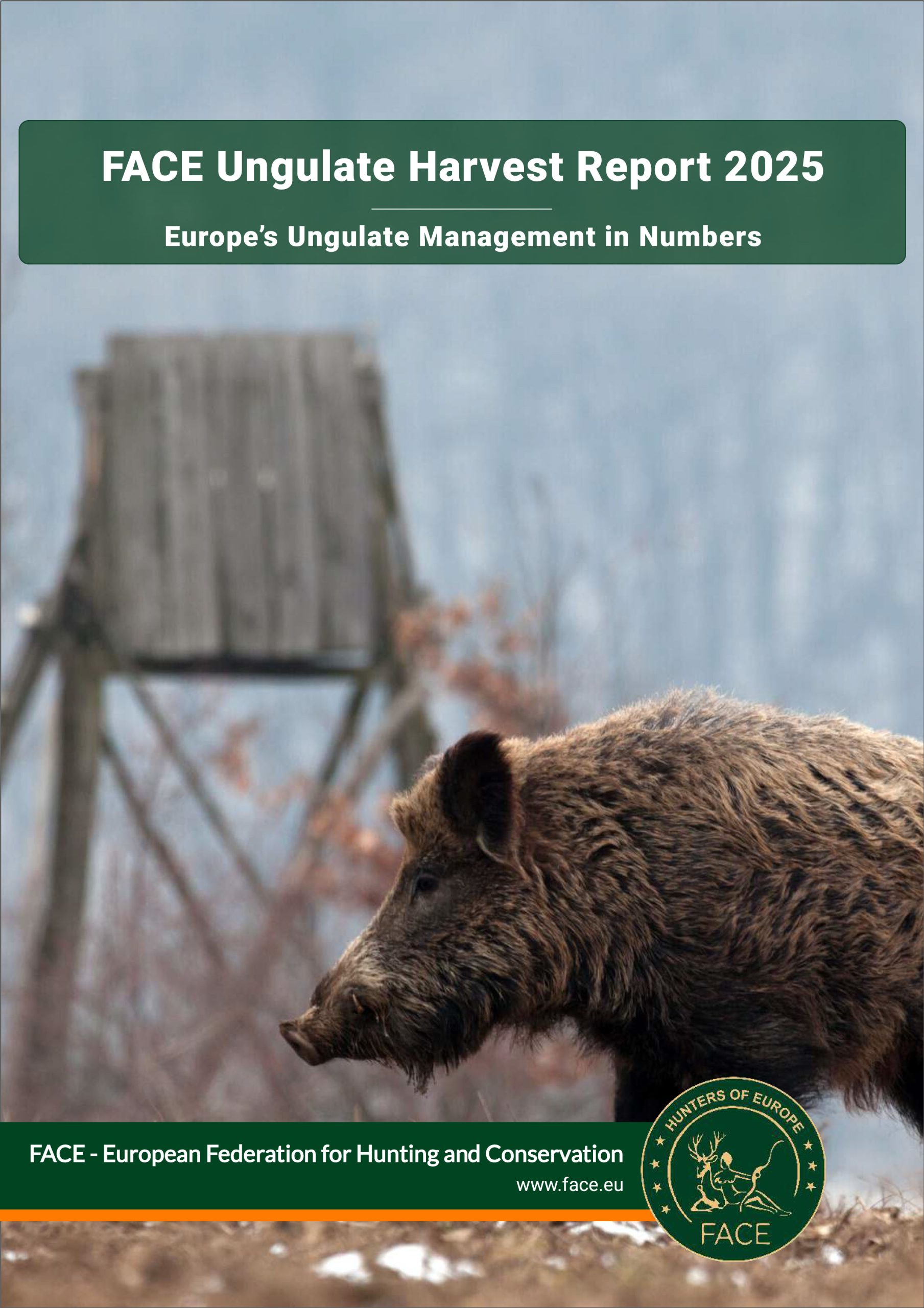
18 Jul 2025 New FACE Report: Latest Estimates of Large Game Harvest in Europe
FACE is proud to release its report on Ungulate Harvest in Europe, the most up-to-date ungulate harvest data compilation in Europe, based on FACE Member contributions.
Drawing on harvest data from 34 European countries, this report presents a comprehensive overview of the continent’s ungulate harvest, which forms part of long-term data sets that reflect the successful recovery and sustainable management of these species across Europe.
This is a remarkable and often underappreciated success story in European conservation. The data presented in this report are made possible by the efforts of hunters and authorities who develop management plans, set harvest quotas based on monitoring, and report their activities to regional and national authorities.
These figures illustrate how hunting contributes to biodiversity conservation by maintaining balanced populations, protecting habitats, and reducing human-wildlife conflict. This collaborative model of sustainable use ensures that hunting is both a tradition and a modern tool for wildlife management, strengthening Europe’s commitment to conservation and responsible land stewardship.
Often overlooked in public discourse, hunting serves critical ecological, social, and economic functions. Beyond being a cultural heritage, hunters’ management efforts support biodiversity by preventing the overpopulation of ungulates, which can lead to habitat degradation and an increased risk of disease. It generates economic and social benefits, supports rural livelihoods, and promotes ecosystem health, benefiting wildlife and biodiversity on a large scale.
Ungulate management also provides high-quality, locally sourced wild meat with a low environmental footprint, contributing to more climate- and nature-friendly sustainable food systems. This naturally sourced meat is enjoyed by millions of hunters, their families, and friends, supporting a tradition of sharing food directly from the field and promoting responsible and sustainable consumption.
As Europe’s natural landscapes face increasing pressures from climate change, habitat fragmentation, and human expansion, the role of hunters in sustainable wildlife management is more crucial than ever. In this context, hunting must be viewed as a forward-looking practice—rooted in responsibility, data, and respect for nature—which stands out as a proven tool for resilience, where active stewardship, not passive preservation, leads the way forward.


